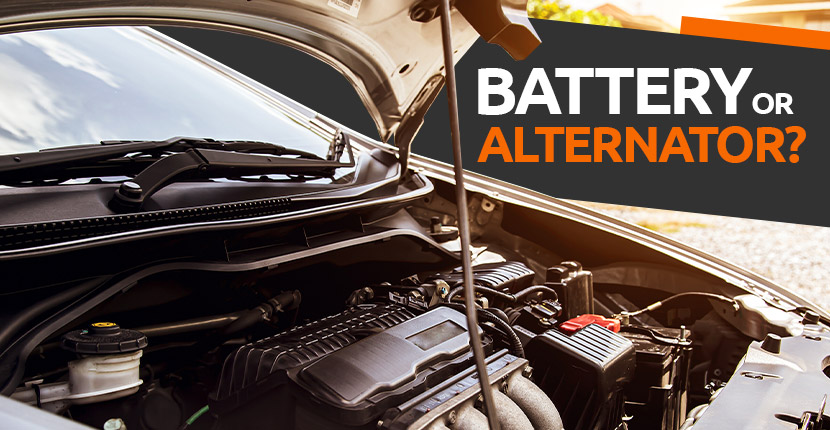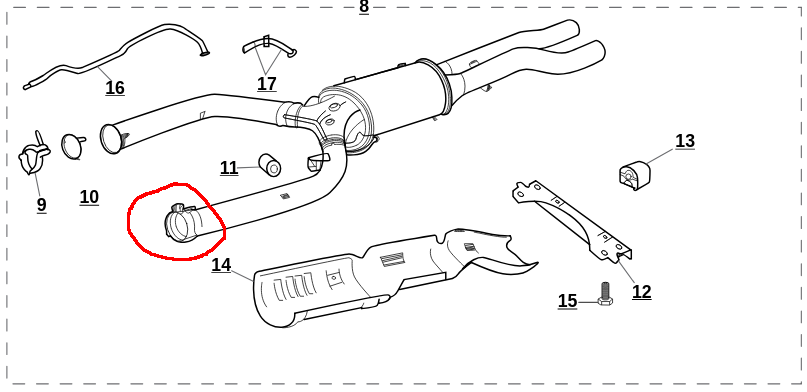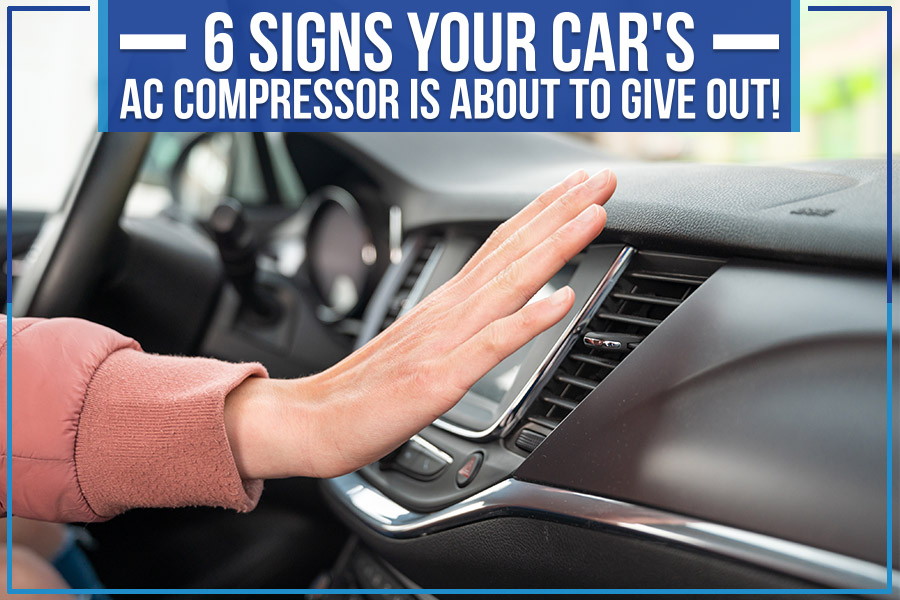Can a Bad Battery Cause Other Problems
A bad battery can indeed cause other issues in your vehicle. It may lead to electrical problems, engine trouble, and affect fuel efficiency.
A car’s battery is the electrical cornerstone that powers all the electronic components within. A failing battery not only struggles to start the engine but can also trigger a cascade of problems that affect the vehicle’s overall performance and longevity.
For instance, weak batteries put extra strain on alternators and starter motors, which could lead to premature failure of these components. A bad battery can also lead to erratic electronic behavior, such as flickering lights or faulty sensor readings. Therefore, ensuring that the battery is in prime condition is crucial for maintaining the vehicle’s reliability and avoiding costly repairs down the line. Regular checks and maintenance are essential to prevent the domino effect a bad battery can cause on your vehicle’s health.

Credit: issuu.com
The Heart Of The Issue
The Heart of the Issue: Just like the human heart pumps blood to support life, a car battery breathes energy into every electrical component of a vehicle. A failing battery doesn’t just mean trouble starting your car. It can lead to a cascade of problems that may affect the vehicle’s performance and longevity. Understanding the vital signs of battery health is crucial for preventative maintenance and ensuring your vehicle runs smoothly.
Signs Of A Deteriorating Battery
Your car’s battery is the cornerstone of its electrical system. Early detection of battery issues can save you from unexpected breakdowns. Look for these tell-tale signs:
- Slow engine crank: When the car takes longer to start upon turning the ignition key, it’s a red flag.
- Dimming headlights: Headlights lose brightness because of poor battery performance, signaling its decline.
- Warning lights: An illuminated battery or check engine light often means the battery needs attention.
- Swollen battery case: A bloated battery case indicates that the battery is overheating or overcharging.
- Corroded connectors: White, ashy substance on the metal parts of your battery is a sign of corrosion and potential problems.
Electricity As The Driving Force
Your vehicle relies on a complex network of wires and circuits all powered by the battery. A steady and reliable electric current ensures that everything from your dashboard to your tail lights functions properly. A compromised battery causes a domino effect:
- It may lead to faulty sensor readings, disrupting the engine’s performance.
- An unstable electrical supply can trigger accessory malfunctions.
- In severe cases, it can even affect the vehicle’s onboard computer systems.
Regular battery checks are essential. They keep the electrical system’s heart healthy, ensuring a smooth and safe journey every time.
Chain Reactions From A Failing Battery
A car’s battery acts like its heart, sending power where it’s needed to keep everything running smoothly. When the battery starts to fail, it can set off a domino effect that might cause unexpected issues throughout your vehicle. Understanding the chain reactions from a failing battery is crucial for maintaining your car’s health and preventing further complications.
Stress On The Alternator
The alternator works hand-in-hand with your battery to supply power to the car. A dying battery puts extra stress on the alternator as it has to work harder to keep up with the power demands, which can shorten its lifespan. Signs that your alternator is under stress include dimming headlights or a struggling engine start. It’s much like running a marathon with a heavy backpack; eventually, the extra load takes its toll.
Voltage Fluctuations Impact
Voltage stability is key for a car’s electrical system to operate correctly. A failing battery can lead to irregular voltage levels, which can affect almost everything. This includes your car’s computer systems, which rely on consistent power to function properly.
- Dashboard warning lights might flicker or stay on.
- The car may run erratically or have issues with performance.
- Important safety features may become unreliable.
It’s a bit like a flickering house light – it’s annoying, and it indicates a deeper problem in the wiring.
Modern Vehicles’ Dependency On Battery Health
Modern cars love their batteries. They’re like the heart of the system. Without a good one, stuff goes wrong. Cars today have lots of fancy tech and that tech needs power. A bad battery? It’s bad news.
Complex Electronics’ Vulnerability
Everything’s connected in a modern car. The battery messes up, and the electronics freak out.
- Navigation: Goes haywire without power.
- Media: Your tunes? Gone.
- Comfort: Air-con and heaters? They could fail.
Safety Systems At Risk
Cars are smart. They protect us. But if the battery dips, safety stuff might drop the ball.
| System | Impact |
|---|---|
| ABS: | Braking gets risky. |
| Airbags: | They might not pop out. |
| Stability Control: | Car could slide. |

Credit: www.batteriesplus.com
Subtle Symptoms You Shouldn’t Ignore
Car batteries do more than just start engines. They affect how the whole car runs. If your car battery goes bad, you might miss the signs. Here are small warnings that tell you your battery needs attention.
Dimming Lights And Erratic Signals
Car lights should shine bright. When they dim, it’s a sign. Your battery could be failing. Don’t ignore your lights getting weaker. This means power isn’t flowing right. Your car might not start soon.
- Headlights look faint? This is not just an issue at night. It shows your battery struggles.
- Interior lights flicker or fade? Your battery could be the cause.
- Dashboard lights are key. If they’re dim, your battery may be weak.
Unresponsive Or Slow Accessories
Your car has many parts that need power. When a battery is weak, they act up. Some signals they give include:
- Power windows that move slower than usual.
- Radio settings that reset or won’t save.
- Car alarms that don’t sound right.
If accessories lag or don’t work, check your battery. It’s likely losing its charge. It’s better to fix it early than to get stuck later.
Preventative Measures And Timely Solutions
If you take care of your car battery, you can avoid other car troubles. Waiting too long can lead to bigger problems. Let’s learn about keeping your battery in good shape and knowing when it’s time for a new one.
Regular Battery Maintenance
Like having a health check-up, your car battery needs regular attention to work well. Simple steps can help it last longer. Check out these tips for good battery health:
- Keep it clean: Remove any dirt or corrosion.
- Check connections: Make sure cables are tight and not worn out.
- Test it often: A quick test shows if it’s still strong.
- Charge it up: Don’t let the battery go dead. Keep it charged.
Recognizing When To Replace
Your car won’t start right if the battery is dying. Look out for these signs:
| Sign | Meaning |
|---|---|
| Slow Engine Crank | It takes longer to start the car. |
| Check Engine Light | The light might mean battery issues. |
| Swollen Battery Case | Heat can make the battery swell up. |
| Age | Batteries can get old. Most last 3-5 years. |
Have a pro check it if you’re seeing these signs. They will tell you if you need a new battery.

Credit: www.slideshare.net
Frequently Asked Questions Of Can A Bad Battery Cause Other Problems
Can A Bad Battery Affect Car Performance?
Yes, a bad battery can lead to poor car performance. It may cause slow engine crank, dimming headlights, and overall reduced vehicle electrical functionality. Consistent power is essential for optimal performance.
Will A Bad Battery Cause Starting Issues?
A bad battery can cause starting issues in vehicles. It may struggle to provide the necessary power to the starter motor, leading to slow or failed attempts to start the engine, especially in cold weather.
Does A Faulty Battery Impact Fuel Efficiency?
A faulty battery can indirectly affect fuel efficiency. A weakened battery may force the alternator to work harder to charge it, which can increase the engine load and reduce fuel economy.
How Can A Bad Battery Damage The Alternator?
A bad battery may force the alternator to overwork to charge it, leading to alternator strain and premature wear. Constant overcharging can overheat and damage the alternator’s internal components.
Conclusion
A failing car battery is more than a mere inconvenience. Left unchecked, it can wreak havoc on your vehicle’s health, escalating to complex electrical issues. Regular maintenance remains key in preventing these knock-on effects. Don’t let a bad battery become a gateway to costlier problems – stay charged and drive with confidence.






